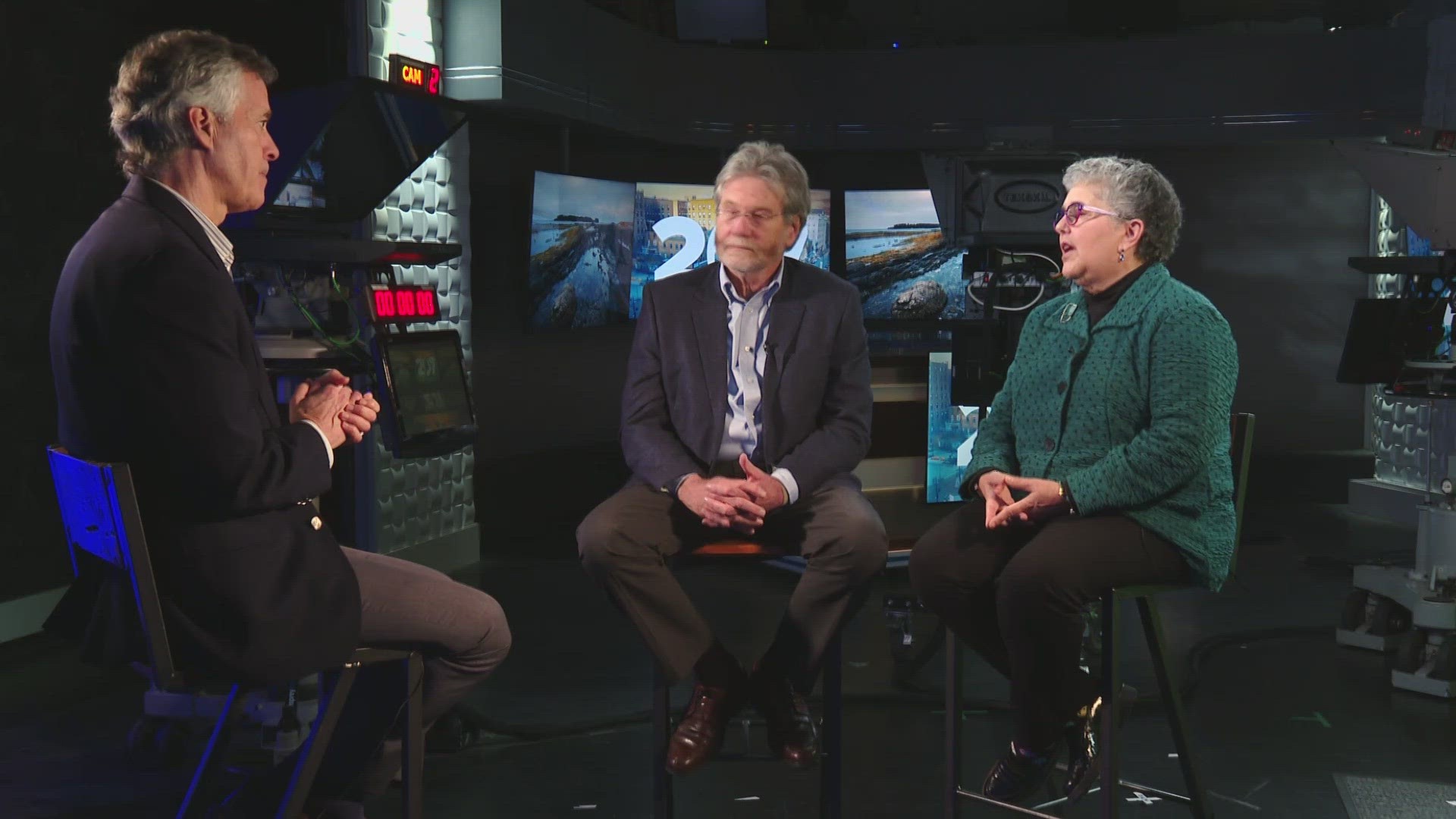PORTLAND, Maine — In more than 40 years as a newspaper reporter, editor, and columnist in Maine, Bill Nemitz may have asked a million questions. What he never did, however, was ask anyone for a million dollars.
The latter is not something that comes easily to him, but Nemitz, who is now retired, has had to step up in his new role as president of the Maine Journalism Foundation, a nonprofit formed in recent weeks with a dauntingly ambitious goal.
It hopes to raise $15 million to buy Masthead Media, the company that owns the Portland Press Herald, along with the daily newspapers in Lewiston, Augusta, Waterville, and Brunswick, and about 20 weekly newspapers across the state.
Masthead’s owner, 66-year-old Reade Brower, said there’s no urgency, but he’s ready to move on to a new chapter in his life and would like to find a new “steward” for the papers.
Reaching out to foundations and wealthy individuals and asking them to write a check—preferably a check with a lot of zeroes—is not something Nemitz ever saw himself doing.
“It goes against every instinct I ever had,” he says, breaking into laughter. “I’ve been involved in nonprofits before…and when I was asked to go on these boards, my going-in message was, ‘I’ll do whatever you want, but I can’t raise money.’ Because, being a journalist, there’s obvious conflict there,” he said.
Even though Nemitz had never asked for donations, he apparently has a gift for it.
“He’s doing a great job,” says Emily Barr, a retired broadcasting executive who, like Nemitz, serves on the MJF board. “He’s good at it. He’s a natural.”
What MJF aims to do is keep newspapers in Maine vibrant and healthy. Its nonprofit model has been adopted and proven in other cities, among them Baltimore, Chicago, and Salt Lake City.
In many other communities in the last two decades, the for-profit model has prevailed—with devastating results. Hedge funds and venture capitalists with a keen appetite for profits but little interest in quality journalism swooped in to buy up struggling newspapers.
“They come into a market,” Nemitz said of most of these hedge funds. “Particularly of a newspaper that’s doing well, and the first thing they do is extract as much money as they can from that newspaper to maximize the immediate return on their investment.”
What follows has happened in hundreds of newspapers across the country.
“You lose half your staff,” Nemitz says. “Your local news dries up.”
Many places don’t have a hollowed-out newspaper. They have no newspaper.
More than 2,000 newspapers have gone out of business in the U.S. in the past two decades, turning countless communities into news deserts, where there’s no coverage of city hall, no investigation of political misdeeds, and no reporting on high school sports.
Nemitz and Barr have both come out of comfortable retirements to try to keep Maine newspapers from being shut down or gutted.
“We just want news in Maine to be not only sustained but to be really invigorated at a time, I think, when the country needs it,” Barr said. “Because, if you don’t have a strong news environment, you don’t have a strong democracy.”
MJF’s goal is to raise $5 million in the coming weeks from local and national donors, with an additional $10 million to follow. If it reaches the first part of the goal, it believes it will demonstrate to Reade Brower and to the community at large that it’s serious and credible.
“If you have the means to assist us, now’s the time,” Nemitz said. “Please contact us because this [fundraising] is not something that’s going to go on forever."

